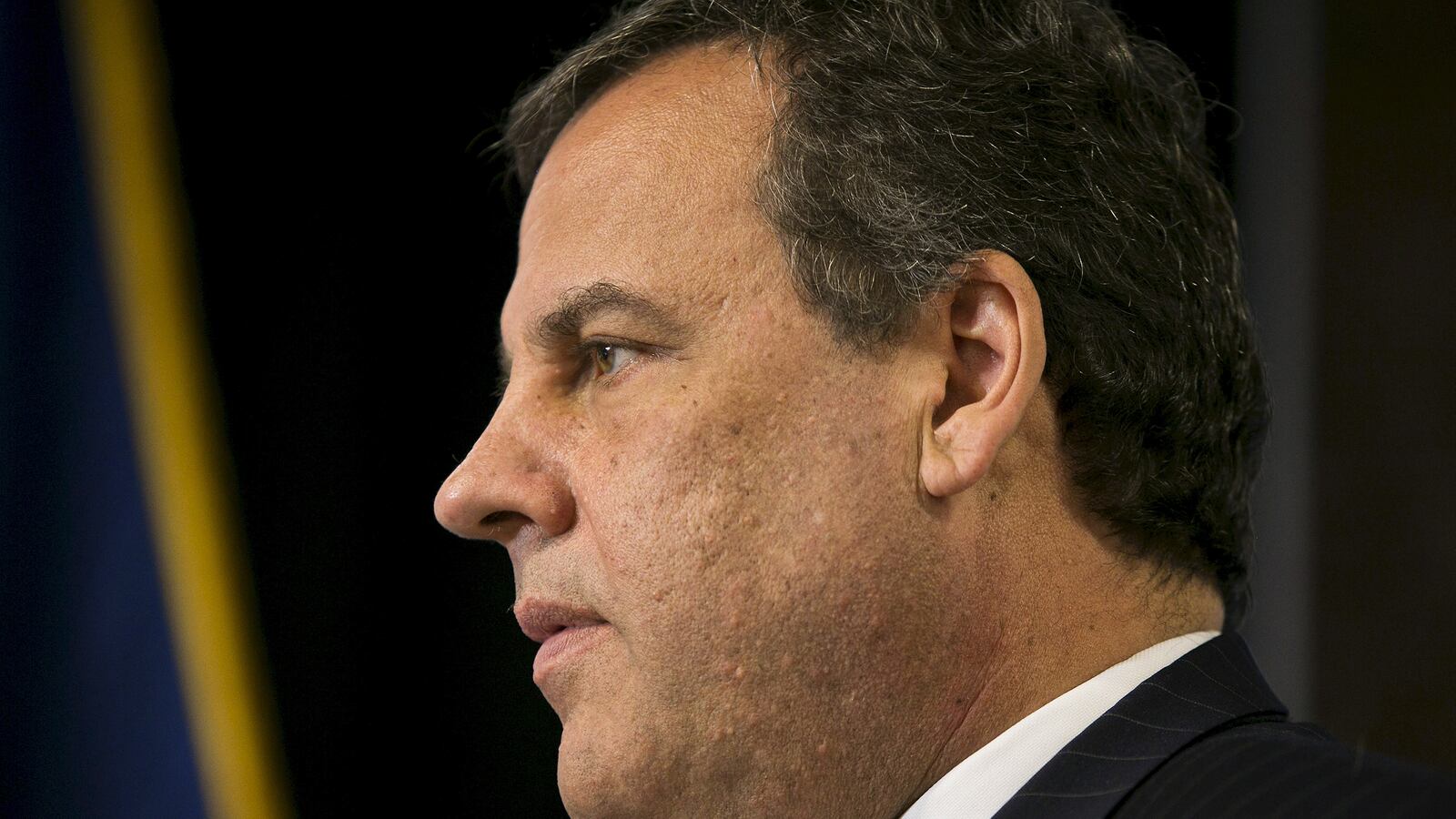On Tuesday, after the entire Republican primary field—including Donald Trump and George Pataki—had taken a position on the Confederate flag, and after the Republican governor of South Carolina, Nikki Haley, had asked for its removal from the state capitol grounds, Chris Christie seemed to calculate that it was politically safe to do the same.
The New Jersey governor said in a statement that Haley had “demonstrated what it means to be a leader” and that he commended her decision.
“While this is a necessary step towards addressing a divisive symbol of racism in our country,” Christie said, “this step will mean little if we do not also honestly confront and discuss the fact that these murders were born out of ugly hate and racism.”
He added, “it is long overdue that we not only shine a light on and condemn the symbols of hate, but on the haters themselves.”
Christie is a leader—if leadership means doing the right thing once it becomes politically toxic to do the wrong thing.
While the American flag was lowered to honor the nine victims murdered by a white supremacist in a historic black church last Wednesday evening in Charleston, the Confederate flag remained raised. It was padlocked in place, and only a vote of two-thirds of the South Carolina legislature could bring it down.
Meanwhile, a debate emerged throughout the rest of the country: Should the flag come down?
Every Republican presidential candidate, including the not-yet-announced ones, had said something—even if it was, like Mike Huckabee, Rick Perry, Rick Santorum, Ted Cruz, Marco Rubio, Scott Walker, and George Pataki, an “It’s up to South Carolina to decide” non-answer.
Lindsey Graham, Rand Paul, and Carly Fiorina called the flag a symbol of racism.
Ben Carson said it “causes a lot of people angst.”
Jeb Bush boasted that he did the right thing in Florida by “moving the flag from the state ground to a museum where it belonged.”
Donald Trump declared, “I would take it down, yes.”
Christie, however, was silent until Tuesday—a day after Haley had, with her press conference, removed any political risk that condemning the symbol of American divisiveness might have carried.
Christie’s reluctance to speak about the flag was made all the more puzzling by his reputation as a straight-talker.
The governor mistakenly earned that reputation not by avoiding the sort of bullshit that politicians usually spew to avoid answering questions but by saying what he calculates he should say in a very loud voice.
Christie has bombastically claimed Vladimir Putin wouldn’t toy with him as he does President Obama. Critics of Christie’s belief that civil rights activists “would have been happy to have a referendum rather than fighting and dying on the streets of the South” have been labeled “numbnuts.” Voters who have questions about where he chooses to educate his children, considering the war he has waged on teacher’s unions, are snapped at because “It’s none of your business.”
The benefits of theater for Christie have historically been twofold: the straight-talker reputation and the distraction it provides from questions of policy and substance.
But maybe the myth of the governor’s courage is crumbling.
On Tuesday, Christie’s approval rating in the Garden State hit a record low of 30 percent, according to a Fairleigh Dickinson University poll. Another NBC/Wall Street Journal poll released this week found that among the Republican field, Christie is in eighth place, 18 points behind Bush.
But when it comes to courage, he’s dead last.






